
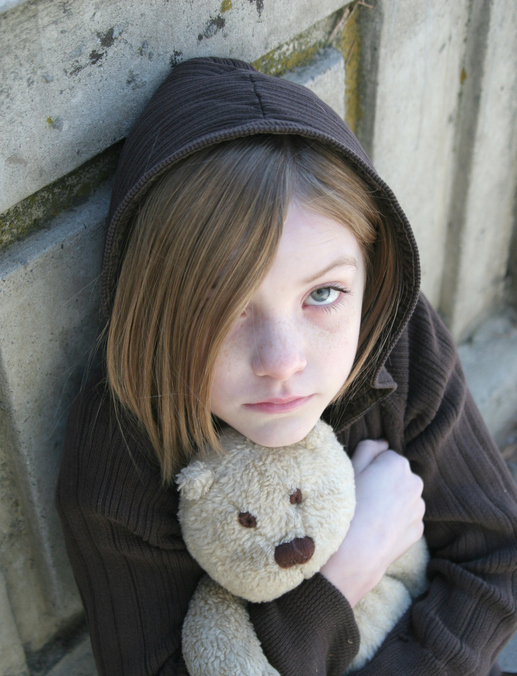
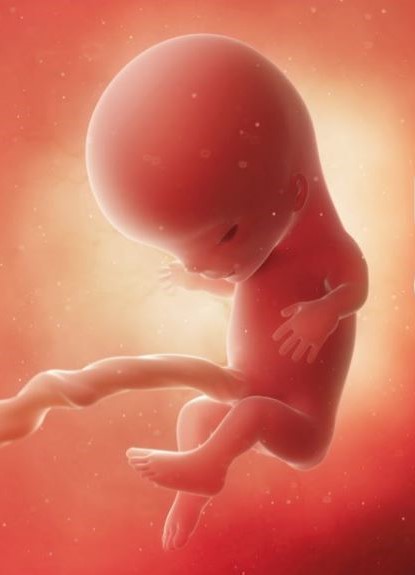
The Save the 8th campaign has called on Irish television stations to show a video-scan of a living, child in the womb at 12 weeks gestation as part of their referendum coverage. The video is featured in a social media campaign promoted to Facebook users over the age of 18 in Ireland.
Speaking about the campaign, Save the 8th’s Niamh Ui Bhriain said: “It is important that this debate is informed and that people have access to basic information. The Government is asking us to legalise abortion for any reason up to three months”.
Ms Ui Bhriain said a fully informed debate need not show graphic images, or upsetting images, but it should show, at a very basic level, what a child in the womb at that age looks like. “Every mother who has had a child in the modern era has seen one of these scans – but most voters have not. The scan shows clearly a developing child, with the identifiable form of a human being, moving and kicking inside the womb”.
She said the Irish people are being asked to give their approval for a proposal that would allow such children to be legally killed. She added that, while many people believe that at 12 weeks, they are voting on “a clump of cells”, the simplest look at a 12 week scan proves this to be untrue.
She concluded: “We are calling on RTE and TV3 to include a video of such a scan in their television coverage of the referendum campaign. If they want a fully informed electorate, they will do so.”

A group of Lawyers have argued that repeal of the Eighth Amendment would remove all constitutional protection from the unborn and clear the way for an expansive abortion regime. in a letter in yesterday’s Irish Examiner, the lawyers said he Supreme Court has clarified in the recent case, M v Minister for Justice, that the unborn have no constitutional rights apart from the Eighth Amendment. They said the Government is proposing an abortion regime that is comparable with that in Britain and is even more extensive than it during the first 12 weeks. With the Eighth Amendment repealed, they wrote, “it would be impossible to challenge successfully the constitutionality of this expansive abortion regime and it may prove very difficult to prevent a future Oireachtas from widening the grounds for abortion even beyond the current expansive proposal”.
Furthermore, they wrote: “The citing of hard cases is not relevant to the proposal in this upcoming referendum. We are not being asked to vote for abortion in certain limited cases, we are clearly being asked to remove all constitutional rights from unborn humans”. They concluded: “We all value our own life. To set at nought the value given to the lives of any cohort of humans is chilling. The enormity of the decision we are about to make as a people cannot be overstated”.

Access to abortion is a “key right” for people with intellectual disabilities, according to Inclusion Ireland, the national association for people with an intellectual disability. The group is taking an official position against the Eighth Amendment, and will be campaigning for its repeal. This is despite the fact that in overseas jurisdictions abortion disproportionately targets unborn children with disabilities.
“One of the key rights we’ve been campaigning for when it comes to rights for women with intellectual disabilities, is whether or not to have children and how to space them”, said the group’s CEO, Paddy Connolly. He said said that the Eighth Amendment imposes a restriction on bodily autonomy, amounting to a “human rights abuse”, because it prevents women from making choices about reproduction. This impacts women with intellectual disability more profoundly than other women as their ability to travel to the UK for abortion is limited.
The move was criticised by campaigners in support of the eighth amendment.
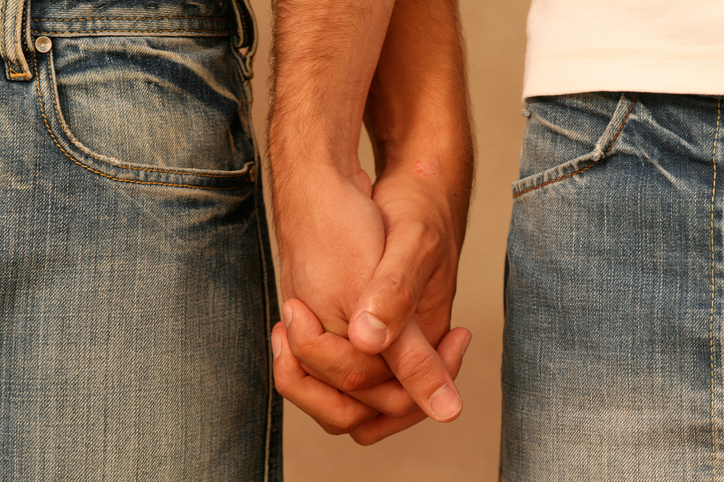
A former TV3 political correspondent has called on the Catholic Church to provide full sacramental marriage for same-sex couples. Ursula Halligan, who came out as gay prior to the Marriage referendum in 2015 and campaigned for its passage, was attending a conference for Catholic reform groups at the weekend ahead of the World Meeting of Families (WMOF) in Dublin in August. She described herself as a “person of faith and a committed Catholic”, but said the Church’s teaching on same-sex relationships was “deeply insulting and offensive”.
“I believe my love is as good as anyone else’s love and as a Catholic I’m looking for full sacramental marriage for same-sex couples,” she added. The Church’s teaching on divorce and remarriage was also attacked.
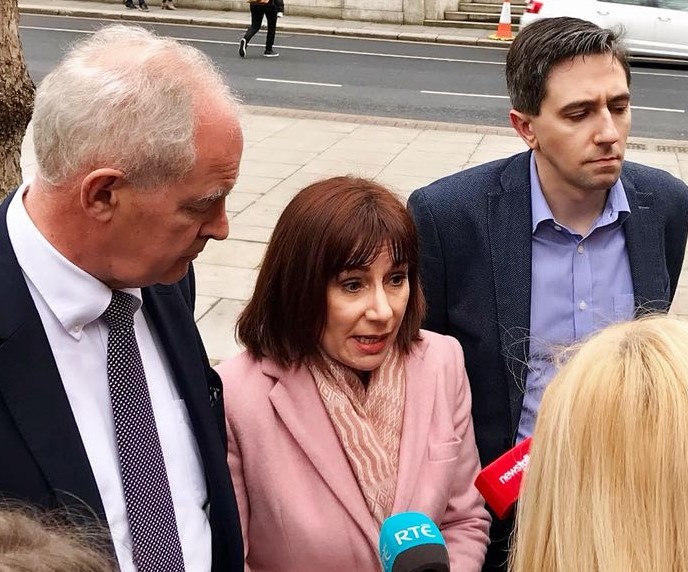
The Government Minister heading Fine Gael’s Repeal the Eighth campaign has been sharply criticised for sharing a platform with a pro-choice activist who sent a tweet celebrating the death of former TD Peter Mathews.
The participation by Culture Minister Josepha Madigan in the Roscommon launch of the Together for Yes campaign has been labelled an “error of judgment” by No campaigners.
She is due to speak at the event with Janet Ní Shúilleabháin, an abortion activist who was formerly part of the Abortion Rights Campaign. Ms Ní Shúilleabháin previously greeted the death of former Fine Gael TD Peter Mathews by tweeting: “Frankly I am glad he is dead.” Mr Mathews was a pro-life politician who lost the party whip when he voted against the Abortion Act of 2013. At the time, columnists asked why Ms Ní Shúilleabháin was not vilified for her comments when others were hounded out of their positions for remarks regarded as equally egregious.

An American Professor of Law has strongly challenged the argument by pro-choice lawyers that the Oireachtas could still enact protections for the unborn child and thereby restrict abortion in the event of the Eighth amendment being repealed from the Constitution. In a letter to The Irish Times, the 60 lawyers and law students claimed that despite the ruling by the US Supreme Court in Roe v Wade in 1973 , State legislatures could still “regulate abortion access” and that, as a result, “many American States now have very conservative abortion laws”.
However, in an opinion piece in today’s Irish Times, Carter Snead, professor of law and political science at the University of Notre Dame in the US, said this is simply not the case. Indeed, not only has the US Supreme Court repeatedly struck down the attempts of individual States to impose even modest restrictions on abortion law, but it has rendered the US regime among the seven most extreme in the World, along with the likes of China and North Korea, according to a recent fact-check by the Washington Post.

The science columnist for the Irish Times has published a letter debunking claims made by pro-choice activists. William Reville is an emeritus professor of biochemistry at UCC. He wrote that pro-choice activists often claim that ‘The foetus is not a human being’. However, he wrote, “it is a biological fact that the foetus, from conception, is a human being. Conception is the start of a continuum of human development that ends eventually in death in old age. At every stage along this continuum the human being has the characteristics appropriate to that stage”.
He also said that the often heard pro-choice slogan ‘My body, my choice’ is also “biologically incorrect”.
“Although housed in and dependent on the mother’s body, the developing baby is not part of the mother’s body. It is a genetically unique human being entirely distinct from the mother”. And he added, “of course, this slogan offers no choice to the foetus”.
He also tackled the pro-choice claim that ‘Abortion should be safe, legal and rare’, but noted that abortion is not rare anywhere it is legally available. “For example, 20 per cent of pregnancies are aborted in the UK, 20 per cent in the US, 25 per cent in Sweden and 14.5 per cent in the Netherlands”. Finally, he tackled the claim that “Irish legislation would set a 12-week limit for abortion”, and asked how long would this limit last?
“Some prominent pro-choice campaigners have said that, if the Eighth Amendment is repealed, they will campaign for a longer limit, eg the UK-style draft legislation prepared by the Labour Party in 2016”, he wrote.
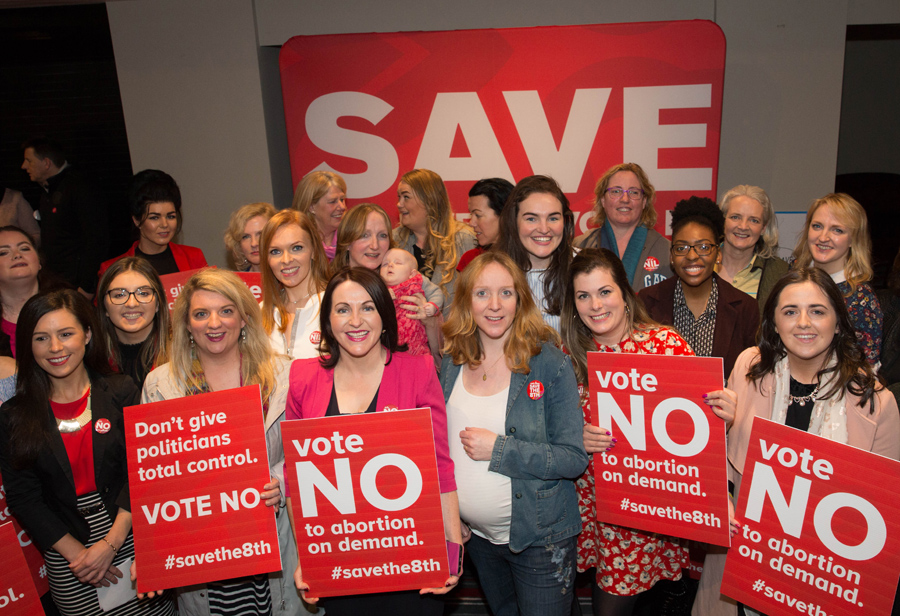
Hundreds of pro-life campaigners packed a hotel yesterday in Clontarf in what was billed as a ‘Monster’ pro-life meeting of those opposed to repealing the 8th amendment. “You are the army, you are the people to bring that message to metropolitan, modern Ireland,” Niamh UiBhriain of the ‘Save the 8th’ organisation said to enthusiastic applause from the crowd. “When you decide as a nation that you have the right to kill another human being there is no going back,” she said. “There is nothing compassionate or progressive about killing children,” she added. “This is a step too far for Irish people.”
Writer John Waters quoted former Labour leader and Communications Minister Pat Rabbitte warning of ‘shock tactics’ being used by the No side in the campaign. “But shock tactics means the truth,” he said. The former Irish Times journalist accused pro-choice campaigners and the media and of using ‘sleight of hand’ tricks “to conceal the truth”. “We don’t have a press anymore,” he said to raucous applause. “Everything is lies, everything is twisted. That’s that you have to get across to people,” he added. He likened the very notion of holding the referendum on repealing the 8th to the sinister prospect of holding a referendum on exterminating the homeless as a means of dealing with the homeless and housing crisis. “We don’t have the right to tamper with these things,” he said. “If you mark yes (on the ballot), that pencil becomes a knife,” he concluded to a standing ovation.
Other speakers included Vicky Wall, of the parents association ‘Every Life Counts’ and businessman Declan Ganley.